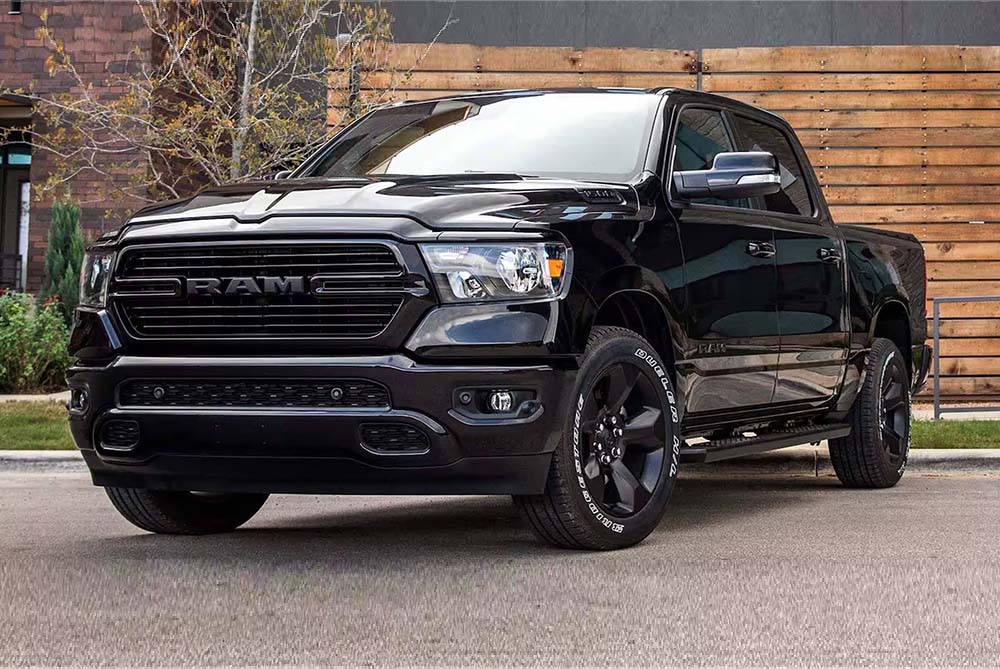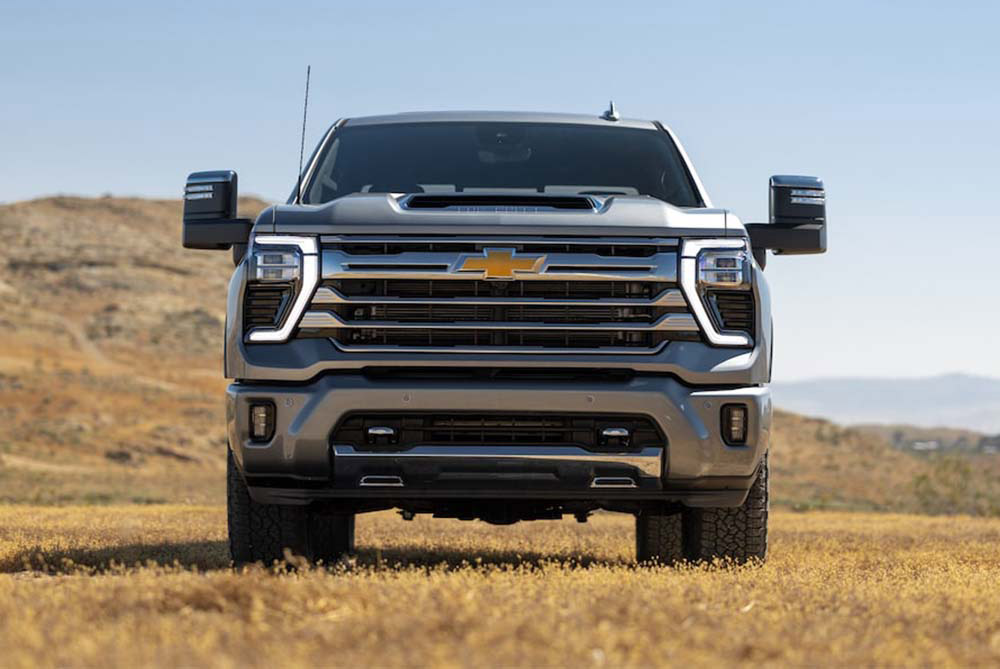George Boulton
July 22, 2024

George Boulton
July 22, 2024

Chevrolet Silverado features active grille shutters which close at high speeds
Beyond aesthetics, grills are designed to optimize airflow
These front-end features are more than just decorative elements; they play a crucial role in defining a truck’s character and enhancing its breathing performance.
The grill is often the first thing you notice on a pickup truck, serving as a large ‘in yer face’ visual signature.
Bold and distinctive grills, like the shiny one on the new GMC Sierra Denali, make a strong statement.

The large, imposing design with its signature chrome slats conveys power and toughness, reflecting the truck’s capabilities.
Similarly, the Ram 1500’s intricate crosshair grill showcases its elegance and aggression in one.
But beyond aesthetics, grills are designed to optimize airflow which is crucial for engine cooling.
The open lattice structures and strategic placement of grill openings ensure there’s a sufficient amount of air reaching the radiator, preventing overheating.

Some take it a step further like the Chevrolet Silverado which features active grille shutters that close at high speeds to reduce aerodynamic drag.
This improves fuel efficiency while still allowing airflow when needed. Who said trucks are just for meatheads?
Now they’re usually made from high-strength plastic and aluminum to balance durability with weight reduction.

These materials resist impact and corrosion, essential for maintaining the grill’s functionality and appearance over time.
The use of advanced composites also allows for more intricate and bold designs without adding excessive weight.
You may also find LED accents and illuminated brand logos, like those on the GMC Sierra. While these can look trash, they do actually enhance nighttime visibility somewhat.
So, while they’re not for everyone, the larger the grille, sometimes the better.
They enhance performance, safety and brand identity, making them a vital component in the overall design and functionality of modern pickup trucks.